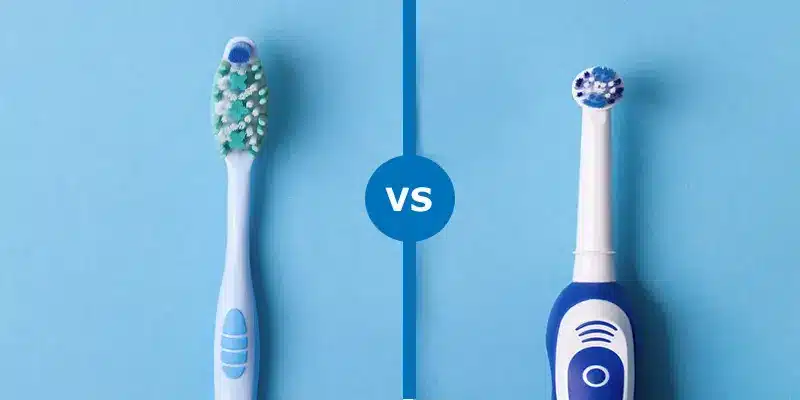Are Electric Toothbrushes Better Than Manual Ones?
When it comes to maintaining optimal oral hygiene, the debate between electric and manual toothbrushes continues. Many people wonder whether investing in an electric toothbrush is truly worth it or if a manual toothbrush can do just as good a job. In this article, we will explore the key differences, benefits, and drawbacks of both types of toothbrushes to help you make an informed decision about your dental care routine.

The Basics of Toothbrushing
Brushing your teeth twice a day is essential for removing plaque, preventing cavities, and maintaining fresh breath. Regardless of the type of toothbrush you use, the key factors for effective brushing include:
Brushing for at least two minutes
Using fluoride toothpaste
Covering all surfaces of the teeth
Replacing the toothbrush or brush head every three to four months
Both manual and electric toothbrushes can effectively clean teeth, but their efficiency may depend on how well they are used.
Advantages of Electric Toothbrushes
Electric toothbrushes have gained popularity due to their advanced features and improved cleaning capabilities. Here are some key benefits:
1. More Effective Plaque Removal
Studies show that electric toothbrushes remove more plaque and reduce the risk of gingivitis more effectively than manual brushes. The oscillating and rotating bristle movements allow for deeper cleaning.
2. Built-in Timers for Optimal Brushing Time
Most electric toothbrushes include timers that help users brush for the recommended two minutes. This feature ensures thorough cleaning and prevents under-brushing.
3. Ease of Use for All Ages
Electric toothbrushes require minimal effort compared to manual ones, making them ideal for children, the elderly, and individuals with limited dexterity, such as those with arthritis.
4. Advanced Technology for Customized Cleaning
Some high-end electric toothbrushes offer features such as:
Pressure sensors to prevent brushing too hard
Different cleaning modes (e.g., whitening, sensitive, deep clean)
Bluetooth connectivity to track brushing habits via smartphone apps
5. Encourages Better Oral Hygiene Habits
The advanced features of electric toothbrushes, combined with interactive apps and reminders, encourage consistent and effective brushing habits.
Disadvantages of Electric Toothbrushes
Despite their advantages, electric toothbrushes have some drawbacks:
1. Higher Cost
Electric toothbrushes are significantly more expensive than manual ones. The initial cost can range from $30 to over $200, with replacement brush heads adding to the long-term expense.
2. Requires Charging or Battery Replacement
Unlike manual toothbrushes, electric toothbrushes need to be charged regularly or have their batteries replaced, which can be inconvenient for frequent travelers.
3. More Fragile Than Manual Toothbrushes
Electric toothbrushes are electronic devices that can break or malfunction over time, whereas manual toothbrushes are simple, durable, and easy to replace.
Advantages of Manual Toothbrushes
Manual toothbrushes have been used for centuries and remain a reliable option for maintaining oral hygiene. Their benefits include:
1. Affordability
Manual toothbrushes are inexpensive and widely available, making them an accessible option for everyone.
2. Portability and Convenience
Manual toothbrushes don’t require charging or batteries, making them easy to use anywhere, especially while traveling.
3. Variety of Options
They come in various shapes, sizes, and bristle types, allowing users to choose one that suits their needs and preferences.
4. Complete Control Over Brushing Pressure
With a manual toothbrush, users can control the amount of pressure applied, reducing the risk of gum damage.
Disadvantages of Manual Toothbrushes
While manual toothbrushes are effective when used correctly, they do have some limitations:
1. Requires Proper Brushing Technique
Many people do not use the correct brushing technique, leading to ineffective plaque removal. Unlike electric toothbrushes, manual ones do not have automated movements to enhance cleaning.
2. No Built-in Timer
Most manual toothbrushes do not have timers, so users may not brush for the full recommended two minutes.
3. Can Lead to Overbrushing or Underbrushing
Some people brush too hard with a manual toothbrush, causing enamel wear and gum recession, while others may not brush thoroughly enough to remove plaque effectively.
Which One is Better for Different Users?
The choice between an electric and manual toothbrush often depends on individual needs. Here’s a breakdown based on specific factors:
For People with Gum Disease or Sensitivity
Best Option: Electric toothbrushes with a sensitive mode
Why? Gentle oscillations and built-in pressure sensors prevent excessive force on gums.
For Children and Teenagers
Best Option: Electric toothbrushes with interactive features
Why? Fun designs and apps encourage good brushing habits.
For Elderly Individuals or Those with Mobility Issues
Best Option: Electric toothbrushes with easy-to-hold handles
Why? Reduced effort needed for thorough cleaning.
For Budget-Conscious Users
Best Option: Manual toothbrushes
Why? They are affordable and effective when used with proper technique.
For Frequent Travelers
Best Option: Manual toothbrushes or battery-powered electric toothbrushes
Why? No need for charging, and they are lightweight and portable.
What Do Dentists Recommend?
Most dental professionals agree that both manual and electric toothbrushes can be effective if used correctly. However, the American Dental Association (ADA) states that electric toothbrushes may offer additional benefits for people who struggle with manual brushing techniques. Dentists generally recommend:
Choosing a soft-bristled toothbrush to prevent gum damage
Brushing twice a day for two minutes
Using fluoride toothpaste for cavity prevention
Flossing daily to remove plaque from between teeth
Visiting the dentist regularly for check-ups and cleanings
Conclusion: Which Toothbrush is Right for You?
There is no universal answer to whether an electric or manual toothbrush is better—it ultimately depends on personal preference, lifestyle, and specific oral health needs. If you struggle with proper brushing technique or want extra features for better plaque removal, an electric toothbrush may be a worthwhile investment. On the other hand, if you have a good brushing routine and prefer a budget-friendly option, a manual toothbrush can be just as effective.
Regardless of your choice, consistency and proper technique are the most important factors in maintaining a healthy smile. If you’re unsure which toothbrush is best for you, consult your dentist for personalized recommendations.
